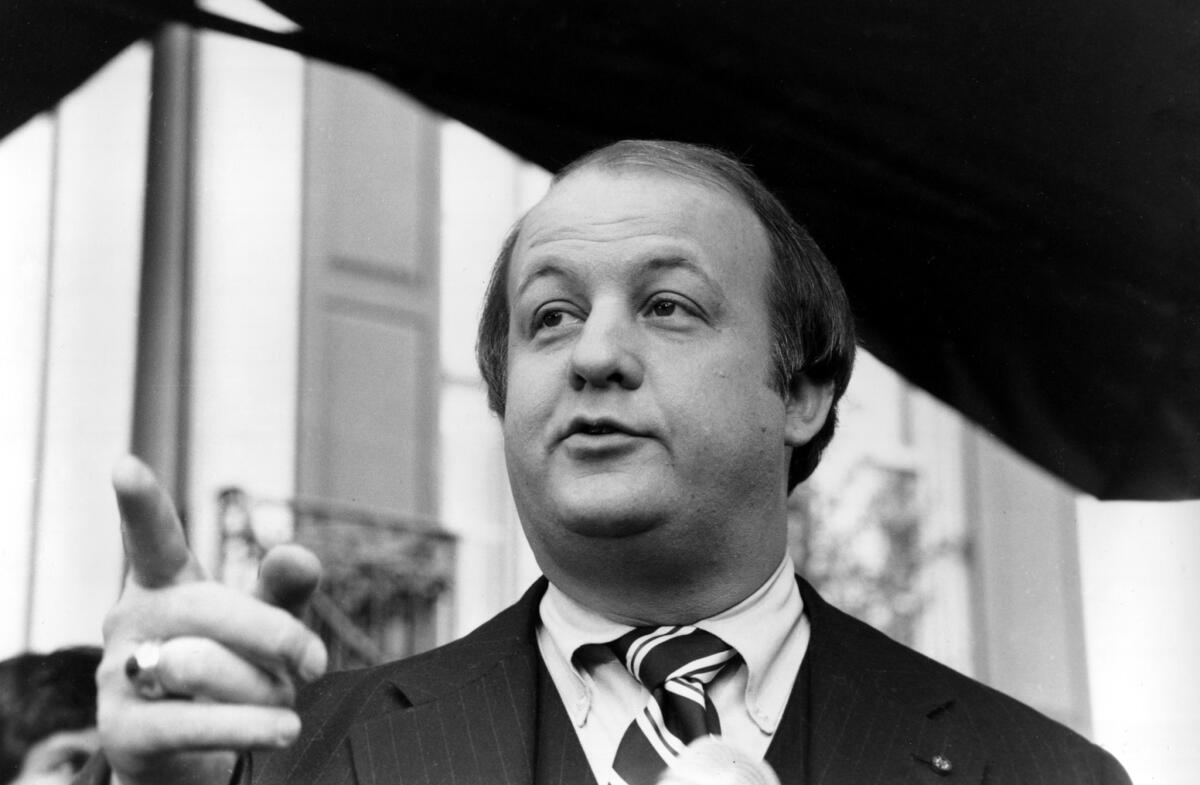Opinion: James Brady, the pope and ethnic stereotypes

- Share via
When James Brady died Monday, most Americans probably thought of him in connection with one of two things: the attempted assassination of Ronald Reagan — in which Brady, the amiable president’s amiable press secretary, was seriously wounded — or Brady’s subsequent involvement in the gun-control movement.
I thought of something else: a New York Times editorial that figured prominently in an article I did for the American Journalism Review 21 years ago about the news media’s fascination with Irish stereotypes.
Even in the 1980s, such stereotyping was politically incorrect, yet journalists always seemed to make an exception for supposed “Irish” personality traits (fatalism, the gift of gab, a sense of humor) or occupations.
Sometimes Irishness itself was treated as a mysterious essence.
That was the case with the 1981 New York Times editorial headlined “Sons of Ireland,” which focused on the Irish backgrounds of Brady and other participants in the drama of the attack on Reagan.
I quote the editorial in full:
“If there was ever a paradigm for the emergence of the Irish in America, it is in the names of the four people injured Monday by the bullets of a would-be assassin. Reagan, Brady, McCarthy, Delahanty — it sounds like the guest list for the annual dinner of the Friendly Sons of St. Patrick.
“McCarthy and Delahanty are in police work. Reagan and Brady are in politics. All four, then, have their feet set on the two ladders that traditionally led the descendants of Irish immigrants out of poverty. And one of them has climbed his way to the very top.
“Too bad another Irishman, William Butler Yeats, isn’t here to comment on the sometimes terrible price of political success in the United States; that same Yeats who often celebrated what he called ‘the indomitable Irishry.’ ”
I called blarney on this fanciful editorial, but the passage of time hasn’t dimmed the appeal of “Irishry” for journalists. I just searched Google News for “Irish humor” and came up with several entries.
Call it the luck of the Irish, but other ethnic groups don’t come in for the same sort of stereotyping. Assumptions about the “national character” of other groups are so taboo that even positive stereotyping (asking an Asian student for help with a math problem) is denounced as “microaggression.”
That’s America. But in other parts of the world people still unselfconsciously invoke ethnic and regional stereotypes. Even the pope isn’t immune. In a meeting Tuesday with a group of altar servers from Germany, Francis lectured the young acolytes about the importance of personal discipline and organizational skills. “But you are Germans,” the pope reassured them, “and you do this well!”
Follow Michael McGough on Twitter @MichaelMcGough3
More to Read
A cure for the common opinion
Get thought-provoking perspectives with our weekly newsletter.
You may occasionally receive promotional content from the Los Angeles Times.









